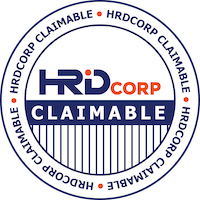Bosch 14Q Basic Principles for the Value Stream
Master quality excellence through Bosch's proven 14Q methodology under expert guidance. Enroll in our comprehensive training program tailored specifically to value stream optimization for systematic quality management skills. Transform your operations with customer-focused principles, standardization techniques, and continuous improvement strategies.
- Available in:
- Malaysia

Corporate Pricing
Pax:
Training Provider Pricing
Pax:
Features
Subsidies

What you'll learn
- Execute measurement and verification techniques with calibrated equipment systems
- Build poka-yoke mechanisms for correct product selection and error prevention
- Develop Total Productive Maintenance strategies using the four-pillar TPM model
- Design correction and improvement systems with documented dual control methods
- Apply customer focus principles including Stop Sign and Andon Cord methodologies
- Create process standardization through restart procedures and labeling systems
- Implement standardization practices for work instructions and process parameters
- Integrate all 14 principles into sustainable quality culture development practices
Why should you attend?
This comprehensive training program introduces participants to Bosch's 14Q Basic Principles, a systematic approach to quality management within value streams. The course begins with foundational customer focus principles, including the Stop Sign methodology for addressing customer complaints through 8D problem solving and the Andon Cord system that empowers associates to halt processes when deviations are detected. Participants explore standardization and leadership principles, covering up-to-date work instructions and process parameters with defined target values and tolerances. The program delves into measurement and verification techniques, emphasizing calibrated equipment and sensor validation systems. Planned maintenance concepts are introduced through Total Productive Maintenance (TPM) methodology, including autonomous maintenance practices and the four-pillar TPM model. The training progresses through process standardization principles, addressing restart procedures, clear labeling systems, and in-process parts control. Correction and improvement methodologies are covered, including rework and scrap governance with documented dual control systems. The final principles focus on system design and culture development, incorporating poka-yoke mechanisms for correct product selection and remaining items management through First In First Out (FIFO) systems. Throughout the program, participants engage in practical exercises including value stream mapping workshops, simulation activities, and real-world case studies. The course concludes with integrated exercises that demonstrate how all 14 principles interconnect and reinforce each other, along with quality culture development strategies for sustainable implementation in daily operations.
Course Syllabus
Day 1 - Foundation Principles Introduction
Short Break
15 minsShort Break
15 minsRecap and Q&A
15 minsLunch
1 hourShort Break
15 minsShort Break
15 minsShort Break
15 minsRecap and Q&A
15 minsEnd of Day 1
Day 2 - Advanced Implementation Integration
Short Break
15 minsShort Break
15 minsRecap and Q&A
15 minsLunch
1 hourShort Break
15 minsShort Break
15 minsShort Break
15 minsRecap and Q&A
15 minsEnd of Day 2
Ratings and Reviews
Instructor
Ms. Sumitha Kannan is a highly distinguished Certified Professional Trainer & Quality Auditor with over 30 years of expertise in strategic quality management, particularly within the realms of Japanese and US-based multinational corporations and Electronic Manufacturing Service providers. She holds an MSc in Strategic Quality Management from the University of Portsmouth, UK, where her influential dissertation was published and widely cited. A senior member of the American Society for Quality (ASQ) and the International Professional Managers Association (IPMA), UK, she possesses certifications as an ASQ Certified Manager of Quality/Organizational Excellence and ASQ Certified Quality Auditor. Her practical experience is vast, having implemented significant quality-based initiatives such as the establishment of an SME program to enrich employee skills and leading the inaugural World Quality Month event that underscored quality as a collective responsibility. She played a pivotal role in achieving ISO13485 and ESDS20:20 certifications concurrently through adept cross-functional team collaboration. Furthermore, Ms. Kannan has facilitated numerous training sessions on various quality topics aimed at elevating organizational excellence. Her commitment extends to crafting tailored training programs that address specific organizational needs while enhancing overall customer satisfaction and competitive advantage.
Minimum Qualification
Target Audience
Methodologies
Instructor Reviews
Sumitha has in depth quality knowledge and crafting quality strategy by cultivating the quality culture and mindset. She initiated the Quality Month within the organization. Her positive attitude created a motivating atmosphere within the team. Work with Sumitha was a true pleasure.
Sumitha possess a deep understanding of QA methodologies, processes, and tools, and her ability to effectively apply this knowledge has been instrumental in improving product quality and ensuring the successful delivery of projects. Sumitha is highly analytical, detail-oriented, and has a keen eye for identifying potential issues and implementing proactive solutions. One of her greatest strengths is her ability to lead, inspire and coach a team.
FAQs
- Public pricing: applies for individuals signing up from different companies.
- Corporate pricing: applies if a company wants to have an intake for its employees only.
- Training provider pricing: applies only for other training providers looking to hire our trainers and use our content. Our content has a licensing fee.
Courses you may like
Why should you attend?
This comprehensive training program introduces participants to Bosch's 14Q Basic Principles, a systematic approach to quality management within value streams. The course begins with foundational customer focus principles, including the Stop Sign methodology for addressing customer complaints through 8D problem solving and the Andon Cord system that empowers associates to halt processes when deviations are detected. Participants explore standardization and leadership principles, covering up-to-date work instructions and process parameters with defined target values and tolerances. The program delves into measurement and verification techniques, emphasizing calibrated equipment and sensor validation systems. Planned maintenance concepts are introduced through Total Productive Maintenance (TPM) methodology, including autonomous maintenance practices and the four-pillar TPM model. The training progresses through process standardization principles, addressing restart procedures, clear labeling systems, and in-process parts control. Correction and improvement methodologies are covered, including rework and scrap governance with documented dual control systems. The final principles focus on system design and culture development, incorporating poka-yoke mechanisms for correct product selection and remaining items management through First In First Out (FIFO) systems. Throughout the program, participants engage in practical exercises including value stream mapping workshops, simulation activities, and real-world case studies. The course concludes with integrated exercises that demonstrate how all 14 principles interconnect and reinforce each other, along with quality culture development strategies for sustainable implementation in daily operations.
What you'll learn
- Execute measurement and verification techniques with calibrated equipment systems
- Build poka-yoke mechanisms for correct product selection and error prevention
- Develop Total Productive Maintenance strategies using the four-pillar TPM model
- Design correction and improvement systems with documented dual control methods
- Apply customer focus principles including Stop Sign and Andon Cord methodologies
- Create process standardization through restart procedures and labeling systems
- Implement standardization practices for work instructions and process parameters
- Integrate all 14 principles into sustainable quality culture development practices
Course Syllabus
Day 1 - Foundation Principles Introduction
Short Break
15 minsShort Break
15 minsRecap and Q&A
15 minsLunch
1 hourShort Break
15 minsShort Break
15 minsShort Break
15 minsRecap and Q&A
15 minsEnd of Day 1
Day 2 - Advanced Implementation Integration
Short Break
15 minsShort Break
15 minsRecap and Q&A
15 minsLunch
1 hourShort Break
15 minsShort Break
15 minsShort Break
15 minsRecap and Q&A
15 minsEnd of Day 2
Instructor Reviews
Sumitha has in depth quality knowledge and crafting quality strategy by cultivating the quality culture and mindset. She initiated the Quality Month within the organization. Her positive attitude created a motivating atmosphere within the team. Work with Sumitha was a true pleasure.
Sumitha possess a deep understanding of QA methodologies, processes, and tools, and her ability to effectively apply this knowledge has been instrumental in improving product quality and ensuring the successful delivery of projects. Sumitha is highly analytical, detail-oriented, and has a keen eye for identifying potential issues and implementing proactive solutions. One of her greatest strengths is her ability to lead, inspire and coach a team.
Corporate Pricing
Pax:
Training Provider Pricing
Pax:
Features
Subsidies

Ratings and Reviews
Instructor
Ms. Sumitha Kannan is a highly distinguished Certified Professional Trainer & Quality Auditor with over 30 years of expertise in strategic quality management, particularly within the realms of Japanese and US-based multinational corporations and Electronic Manufacturing Service providers. She holds an MSc in Strategic Quality Management from the University of Portsmouth, UK, where her influential dissertation was published and widely cited. A senior member of the American Society for Quality (ASQ) and the International Professional Managers Association (IPMA), UK, she possesses certifications as an ASQ Certified Manager of Quality/Organizational Excellence and ASQ Certified Quality Auditor. Her practical experience is vast, having implemented significant quality-based initiatives such as the establishment of an SME program to enrich employee skills and leading the inaugural World Quality Month event that underscored quality as a collective responsibility. She played a pivotal role in achieving ISO13485 and ESDS20:20 certifications concurrently through adept cross-functional team collaboration. Furthermore, Ms. Kannan has facilitated numerous training sessions on various quality topics aimed at elevating organizational excellence. Her commitment extends to crafting tailored training programs that address specific organizational needs while enhancing overall customer satisfaction and competitive advantage.
Minimum Qualification
Target Audience
Methodologies
FAQs
- Public pricing: applies for individuals signing up from different companies.
- Corporate pricing: applies if a company wants to have an intake for its employees only.
- Training provider pricing: applies only for other training providers looking to hire our trainers and use our content. Our content has a licensing fee.
Courses you may like
Our Offers

Become a Trainer
Teach what you love. Abundent Academy gives you the tools you need to run your own trainings! We provide you with the platform, the students, the materials, and the support you need to succeed!
- Higher trainer payouts
- Ready-made course materials
- Student management system
- AI digital marketing assistant

Academy for Business
Get unlimited access to all of Abundent Academy's carefully curated courses for your team, all organized according to job category and role! Perfect for companies looking to upskill their workforce and stay ahead in the tech industry.
- Carefully curated courses
- Role-based learning paths
- Team progress tracking
- Gap Identification and Analysis
Top companies choose Academy for Business







